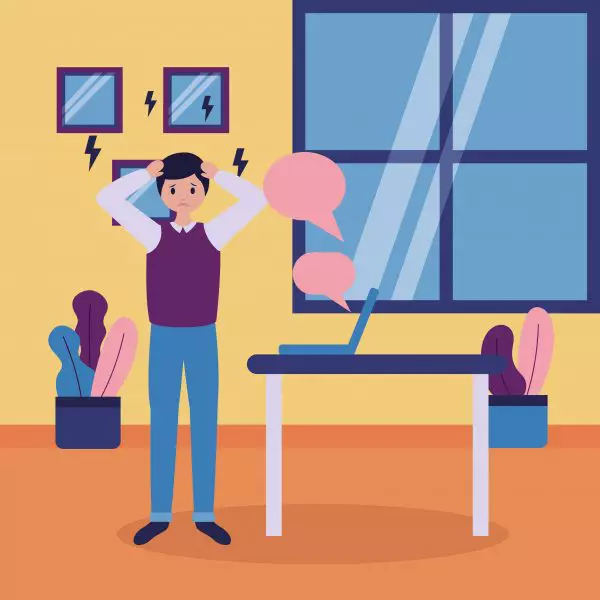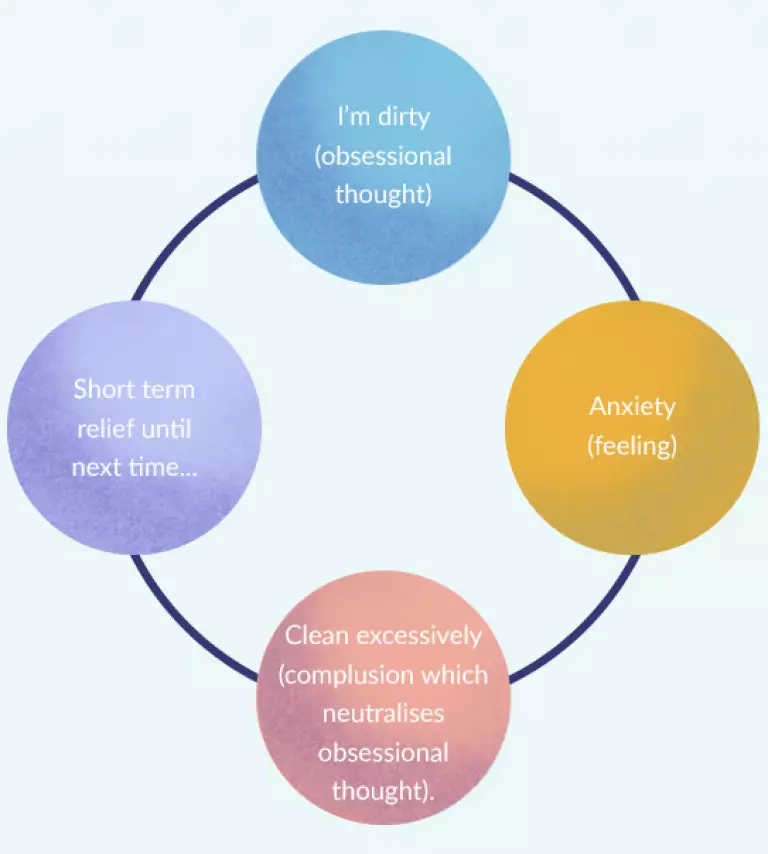Obsessive Compulsive Disorder (OCD) is a common difficulty among the UK population. If you are struggling with OCD, chances are your life is being disrupted by difficult thoughts and rituals (compulsions) taking away precious time for your everyday activities. Counselling, Therapy and CBT can be the answer to these issues. OCD therapy can provide you the tool to take back control and live the life that you want. Read on to find out more about Obsessive-Compulsive Disorder and get in touch with one our our expert OCD Therapists to get professional OCD therapy in London today.

OCD is an anxiety-based issue, characterised by distressing thoughts, or obsessions, which lead a person to feel compelled to carry out an action in order to dispel the distressing thoughts and associated anxiety. OCD can range from mild to severe in terms of the distress it causes and the impact it has upon an individual’s life. Being absorbed by obsessional thoughts and engaging in lengthy compulsive behaviours can take up a lot of time and energy which interferes and takes time away from engaging on other, more valuable activities.
This can lead to OCD having a detrimental impact upon various aspects of a person’s life, including school, work, hobbies and relationships. A large number of people who experience OCD also suffer with depression making it an even more challenging problem to overcome. Our OCD therapists are highly knowledgeable and experienced who can work with you to develop a tailored OCD therapy plan. We can help you to tackle your OCD, to reduce the distress it causes as well as the impact it has upon you life so it no longer has a hold over you.
OCD consists of, as the term implies, obsessions and compulsions. Obsessions are unwanted and persistent thoughts and images that enter your mind that cause you to feel uneasy, anxious and/or disgusted.
Examples of common obsessions are:
A compulsion is a repetitive behaviour (either an action that you/others can see or an action you may do in your mind) that you feel compelled to do to relieve the unpleasantness brought on by the obsession. You may feel you need to carry out the compulsion to prevent a bad thing from happening.
Examples of common compulsions are:
Checking doors and windows are locked
Psychotherapy and counselling do work for OCD. Systematic reviews [1] provided a large amount of evidence that Cognitive Behavioural Therapy (CBT) is the therapy of choice for OCD. CBT has been shown to be effective for many people suffering from OCD. In CBT for OCD, the first step is trying to make sense of your OCD and what is maintaining it. This involves exploring the links between your obsessions, feelings and compulsions.
For example:

Research shows that most people experience somewhat odd and often intrusive thoughts, however they do not all go on to develop OCD. The difference is that those who go on to develop OCD give meaning and significance to the odd thoughts. This gives the odd thoughts power which leads to anxiety and the urge to relieve this anxiety by carrying out a compulsion.
Not only that, seeing the initial odd thought(s) as threatening leads to more of these thoughts in the future. Whereas those who do not go onto develop OCD see the odd thought for what it is, just a thought. It is not interpreted as threatening, therefore passes more quickly and will pop up less frequently (if at all!) in a person’s mind. In CBT for OCD you will be helped to learn to challenge obsessional thoughts and to see them for what they are, just thoughts that do not need to be acted upon.
Carrying out a compulsion relieves anxiety in the short term, however, it keeps it going in the long term. This is because it is not learnt that by not carrying out the compulsion the fears would not have come true anyway. In CBT for OCD you will begin to address this by gradually reducing your compulsions. This will likely be scary, however in CBT for OCD you can learn various tools to help you manage the discomfort this brings.
In therapy it may also be helpful to address underlying factors that are feeding into your OCD, such as low self-esteem, perfectionism as well as striving for control and certainty.
 If you are looking for OCD therapy in Central London, at Therapy Central we can help you learn the strategies you need to start dealing with your obsessions and compulsions, while understand the causes of your OCD. As a result, you’ll be enabled to make the crucial changes to bring balance and fulfilment back into your life.
If you are looking for OCD therapy in Central London, at Therapy Central we can help you learn the strategies you need to start dealing with your obsessions and compulsions, while understand the causes of your OCD. As a result, you’ll be enabled to make the crucial changes to bring balance and fulfilment back into your life.
It’s not easy to recognise that you might have an OCD issue. Some of us feel afraid or embarrassed by the thoughts our minds produce, but remember that you are not choosing to experience this. If you’re experiencing OCD it is not your fault, and you should not deal with it alone.
Get professional help and OCD Therapy in London today. Contact us for a free 15 min consultation with an OCD Therapist to see if our help would fit your needs. You can also get in touch via email at info@therapy-central.com or call us at (+44) 020 348 82797.
Our comfortable and confidential therapy rooms are conveniently located 3 min walk from Oxford Circus station, in Central London (see map below). Change starts with Talking!
Further Helpful Resources For Managing Anger:
NHS Obsessions and Compulsions PDF
NHS OCD Treatment page
OCD Self-Help
Other issues we work with at Therapy Central
Learn more about how CBT works
Image Credits:
Dr. Amy Smith, Counselling Psychologist
Dr Raffaello Antonino, Clinical Director, Counselling Psychologist
References:[1] Ponniah, K., Magiati, I., & Hollon, S. D. (2013). An update on the efficacy of psychological therapies in the treatment of obsessive-compulsive disorder in adults. Journal of obsessive-compulsive and related disorders, 2(2), 207–218. https://doi.org/10.10